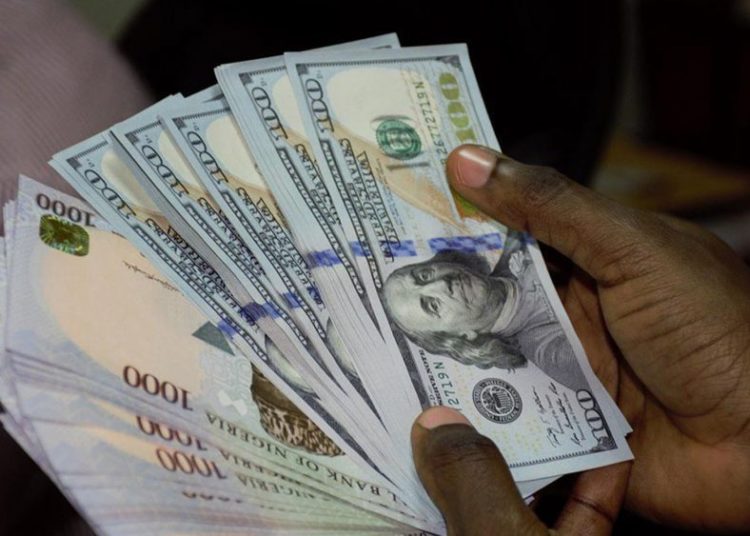A member of the Central Bank of Nigeria’s (CBN) monetary policy committee, Prof. Idiahi Obadan has urged the apex bank to review personal transactions that qualify for dollars at the official exchange rate to help cushion the impact of dollar scarcity in the country.
This is as another MPC member, Prof. Adeola Adenikinju called for the removal of fuel subsidy, projected to gulp N7.36 trillion between 2022 and 2023.
The two MPC members made the calls in their respective personal statements contained in the CBN communique of the MPC meeting of July, released on Wednesday.
Nigeria allows citizens to purchase dollars at the official exchange rate of about N429 for specific services, including foreign tuition and medical expenses. That is a deep discount on the widely-used black market rate of about N700, which has shot up in recent months amid a widespread dollar shortage.
“If parents are willing to fund the very expensive foreign education, it will be far cheaper for them to educate the children in the most expensive and good private schools in Nigeria,” Obadan said.
Nigeria has been rationing the greenback following a drop in oil production, which accounts for over 80 per cent of its foreign exchange earnings. That has left companies struggling to pay foreign suppliers and loans.
The Nigerian school and university systems are underfunded, leading many Nigerians who can afford it to educate their children abroad.
In his own comments, Prof Adenikinju said, “On the fiscal challenges confronting the country, there is an urgent need to jettison the current fuel subsidy policy. While in an election year, the government may be very reluctant to embark on this policy, it is not impossible for the government to force the NNPC Ltd to be more efficient and transparent.”
Fuel subsidy is already billed to consume N4 trillion in 2022, even as the federal government is proposing to spend N3.36 trillion in 2023 based on the 18-month extension announced early this year.
The minister of Finance and National Planning, Zainab Ahmed, had last week revealed the mind of the government, insisting that fuel subsidy will remain in place until mid-2023 when she appeared before the House of Representatives Committee on Finance to defend the 2023-2025 Medium Term Expenditure Framework (MTEF) and Fiscal Strategy Paper (FSP).
Ahmed had earlier disclosed that the government was spending N18.39 billion daily on Premium Motor Spirit (PMS), otherwise known as petrol.
Adenikinju also stressed the need for increased education and enlightenment on the costs of the subsidy on the economy, and on most Nigerians.
“Government should also ensure that the Compressed Natural Gas (CNG) programme designed to provide gas as alternative motive fuel for transportation is aggressively implemented.
“Improvement in electricity supply will also reduce the amount of fuel being consumed in the economy, and thereby lower the overall subsidy payment,” he said.
Adenikinju, who voted to raise the Monetary Policy Rate (MPR) by 100 basis points to 14 per cent, said he was concerned that inflation is driving Nigerians to abject poverty.
His words, “Inflation is rising at an unacceptable rate. Rising inflation is a threat to investment and output growth. Inflation is lowering the real incomes of Nigerians and driving more people to poverty. Inflation is hurting many Nigerians, whose nominal wages have remained stagnant for many years.
“It is dragging down the values of savings, wages, and pensions for retirees. Price stability is a core function of the MPC, and hence, the high level of domestic inflation is unacceptable.”











